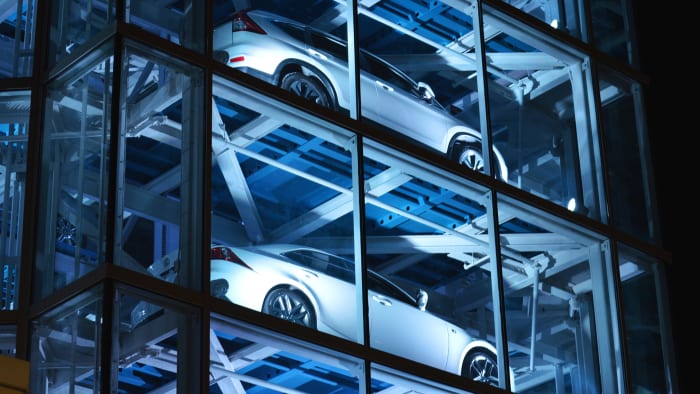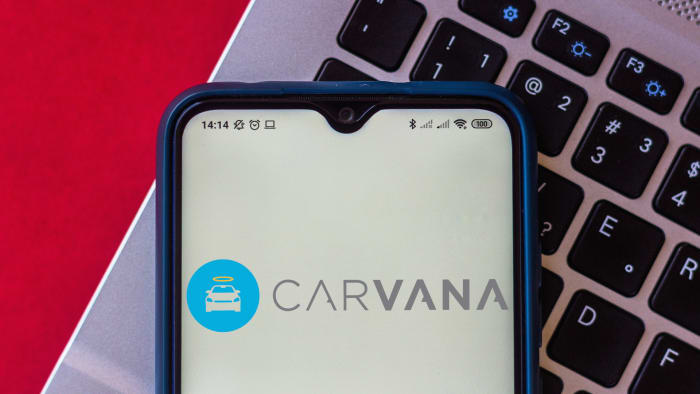He vowed to transform the notorious used car market with an innovative business model and win the trust of used car customers. The Tempe, Arizona-based company says it has found a formula that makes buying a used car a satisfying transaction for its customers.
one stop shop
Carvana wants to be your one-stop shop for used cars. In fact, the company offers its customers a turnkey purchasing solution. We inspect, repair, finance and sell vehicles purchased for resale. None are original at the moment, and there are used car dealers now offering the same service.
The difference is that you can access your inventory from your company's virtual catalog. His patented 360-degree imaging technology allows you to see each vehicle through the glass. Customers can have their cars delivered to their homes. You can also visit one of the giant Carvana vending machines in over 25 US cities to pick up your new purchase. Yes, our collection of 24 used car vending machines is Carvana's specialty.
With one of these vending machines, customers can easily pick up their new car while dropping off their old one. Alternatively, Carvana will ship the purchased vehicle directly to the consumer. Each vehicle is covered by our 7 day return policy. This model gave Carvana an advantage as the US used car market is highly fragmented. There are now about 43,000 used car dealers, of which nearly two-thirds are independent. The problem is that the company doesn't seem to have anticipated the headwinds. In particular, the slump in the used car market, especially with a potential recession and a sharp rise in interest rates, has made auto loan financing expensive, signaling a normalization of the market. new market.
The Mannheim Used Car Value Index, which monitors the prices of used cars sold at US wholesale auctions, fell 15.6% in November from a record level in January. Many automakers such as Tesla (TSLA) - Get Free ReportFor example, it has recently lowered its prices, offering deep discounts to consumers. This indicates that the supply of new cars is outstripping demand. It is logical to assume that consumers will abandon the second-hand market when faced with attractive new offers and promotions.
recession is looming
Used car retail sales in November are estimated to be down 1% from the previous month and down 10% year-over-year, according to Cox Automotive. It is also estimated that in 2021 he is likely to decline by 12% from 40.6 million.
All this is the exact opposite of what happened during the pandemic. At that time, chip shortages had a huge impact on automakers' inventories, and they were unable to produce as much as they wanted. On the demand side, consumers who want to avoid public transit and congested modes will likely switch to buying a car if they have the money. The federal government stimulated the economy in the form of checks to households.
All of this has resulted in used car prices skyrocketing. In 2021, the used car market recorded his 41% increase. Carvana could smile because the situation was such a good deal for the company. This is no longer the case today. Carvana's model is based on the fact that the company needs to sell more used cars than it buys. Not only did the company sell less, but the value of the cars in its inventory also fell. The trend isn't going to stop, as many economists and business leaders are predicting a recession in his 2023.
As a result, the booming company is now experiencing an equally dramatic decline. The stock has lost his 98.4% of its value and is currently trading at $3.72. It's no longer far from a penny stock. The market cap has completely collapsed, from his $41 billion on December 31, 2021 to now he is over $600 million.
“substantial liquidity”
The question now is not whether Carvana will recover, but when the company will file for Chapter 11 bankruptcy. Creditor Group -- Private Equity Firm Apollo Global Management (AAM PA) and Pacific Investment Management, known as Pimco, have already taken the lead by signing agreements to negotiate together to try to get their money in liquidation or bankruptcy proceedings.
These investors hold approximately $4 billion of Carvana's $6 billion unsecured debt. The company is also said to be in talks with lawyers and investment banks to explore options for managing its debt.
“Carvana is not involved in any cooperative arrangements between bondholders and does not address issues arising from actions taken by such bondholders,” a spokesperson told TheStreet on December 7. Told.
"There is enough liquidity to get there. Today's news will never change that strategy."
The problem is that the Fed plans to keep raising rates in 2023.

